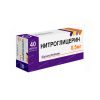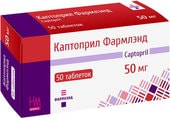Enap 5mg Tablets: Powerful Blood Pressure Control
Enap 5mg tablets provide effective treatment for hypertension, heart failure, and the prevention of heart failure in patients with asymptomatic left ventricular dysfunction. This comprehensive guide delves into the detailed information you need to understand Enap 5mg tablets, including its uses, dosage, side effects, and precautions.
What are Enap 5mg tablets?
Enap 5mg tablets contain enalapril maleate, a potent angiotensin-converting enzyme (ACE) inhibitor. ACE inhibitors work by blocking the production of a hormone called angiotensin II, which constricts blood vessels and raises blood pressure. By inhibiting ACE, Enap effectively lowers blood pressure and reduces strain on the heart.
Key Features:
- Dosage: 5mg per tablet
- Appearance: White, round tablets with a flat surface, beveled edges, and a notch on one side
- Packaging: 10 tablets per blister pack, with 2 blister packs per cardboard box
Uses of Enap 5mg tablets:
- Hypertension: Enap effectively controls high blood pressure, reducing the risk of heart attacks, strokes, and other cardiovascular complications.
- Heart Failure: Enap helps to improve symptoms of heart failure, such as shortness of breath and fatigue, by reducing strain on the heart and improving blood flow.
- Prevention of Heart Failure: Enap can prevent the development of heart failure in patients with asymptomatic left ventricular dysfunction, a condition where the heart’s pumping ability is weakened.
Dosage and Administration:
The dosage of Enap 5mg tablets is individualized and depends on your medical condition and response to treatment. Your doctor will determine the appropriate dosage for you.
Important Precautions:
- Hypotension: Enap can cause a drop in blood pressure, especially in patients with hypovolemia, heart failure, or renal impairment. Your doctor will closely monitor your blood pressure during treatment.
- Renal Function: Patients with kidney disease should be monitored closely for any changes in renal function while taking Enap.
- Liver Function: Enap can cause liver damage in rare cases. If you experience jaundice or a significant increase in liver enzymes, stop taking Enap and consult your doctor immediately.
- Cough: A persistent dry cough may occur with Enap. If you experience this, inform your doctor.
- Surgery/Anesthesia: Inform your surgeon or anesthetist that you are taking Enap before any surgery or anesthesia.
- Pregnancy: Enap is not recommended during the first trimester of pregnancy and is contraindicated during the second and third trimesters.
- Breastfeeding: Enap may pass into breast milk, and its use is not recommended for breastfeeding mothers.
- Ethnic Differences: Enap may be less effective in lowering blood pressure in patients of African descent.
Potential Side Effects:
- Common Side Effects: Dizziness, headache, fatigue, dry cough, and lightheadedness.
- Serious Side Effects: Angioedema (swelling of the face, lips, tongue, or throat), hypotension, renal failure, hyperkalemia (high potassium levels), and neutropenia (low white blood cell count).
Drug Interactions:
Enap can interact with other medications, including:
- Diuretics: May increase the risk of hypotension.
- Potassium-sparing diuretics: May increase potassium levels.
- Lithium: May increase lithium levels.
- NSAIDs (nonsteroidal anti-inflammatory drugs): May reduce the effectiveness of Enap.
Always consult your doctor before taking Enap 5mg tablets or any other medication. They will assess your individual medical history, determine the appropriate dosage, and monitor your progress during treatment.
This information is intended for educational purposes only and does not replace professional medical advice. Please consult your healthcare provider for any questions or concerns regarding Enap 5mg tablets.
| INN | ENALAPRIL |
|---|---|
| The code | 1 313 |
| Barcode | 3 838 989 541 590 |
| Dosage | 5mg |
| Active substance | Enalapril |
| Amount in a package | 20 |
| Manufacturer | KRKA, d.d., Slovenia, Slovenia |
| Trademark | KRKA |
| trade line | Enap |
| Importer | IOOO Interfarmaks 223028 Minsk region, Minsk district, Zhdanovichsky s / s, ag. Zhdanovichi, st. Star, 19a-5, room. 5-2 |
 Free worldwide shipping on orders $99+
Free worldwide shipping on orders $99+  US: temporary delays — postal services aligning new import rules,
US: temporary delays — postal services aligning new import rules,  EU: 1–2 weeks,
EU: 1–2 weeks,  Worldwide: 1–4 weeks
Worldwide: 1–4 weeks 











